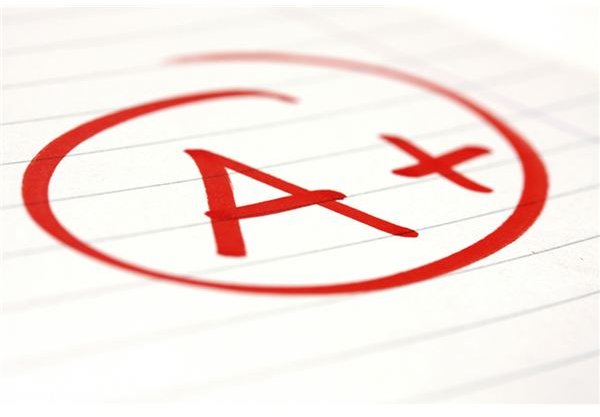Tips for College Writing: The Way to an A
Writing for College
What college students have the most difficulty with (aside from math classes) is probably being required to write a college-level paper. In many classes, a significant part of your grade will be the term paper, and your professors will expect a certain level of quality that’s quite
a bit higher than your high school teachers might have demanded. Regardless of what type of paper you’ll be writing, here are some tips for college writing to help you get the grade you desire.
Before You Start: Preparing to Write a College Paper
Depending on your writing style, you might be tempted to just sit down and start, but it’s helpful to take some time to prepare first. Figure out what topic you’ll be writing on and start your research (if applicable) as soon as possible; this way, if for some reason the topic doesn’t work out, you’ll have time to choose a new one.
If research is required, taking good research notes will make writing the paper much easier. Be sure to write down both the information you need and the source - including the author’s name, the title of the book or paper, and the page where you found that information; this makes it much easier on yourself if you need to go back and check things later on! Indeed, of all the tips for college writing, this is the one that can save you the most time; it’s extremely frustrating having to go back through all of your reading trying to find the original source of a quote!
Make sure you understand the assignment; you don’t want to put in a lot of effort, only to find that you misunderstood what you were supposed to be doing!
Writing the Paper
Avoid logical errors! If you’re writing an opinion or persuasive essay, you’ll be attempting to convince the reader of your position; don’t mess it up by committing a logical fallacy. You’ll generally be exposed to common fallacies in a freshman-level composition or speech class; some common ones are ad hominem (attacking the person rather than the argument), slippery slope (if we take the first step, all the rest are unavoidable), appeal to authority (just because famous person X says something, doesn’t mean it’s true, especially if X isn’t an expert in that area), ad populum (everyone believes this, so it must be true), begging the question (assuming what you’re trying to prove), and straw man (arguing against a different argument than the one that was actually made), but there are many more. It’s worth familiarizing yourself with false dichotomy, non sequitur, post-hoc ergo propter hoc, and tautology as well.
Avoid awkward sentences: read your essay out loud to see if it makes sense. If it sounds awkward when read aloud, you should probably revise it. It’s often easier to hear errors than it is to find them when reading silently.
Make sure your spelling and grammar is correct. Don’t rely on spell-check to find your errors! This lion eye no is rite; my spell Czech tolled me sew!
Editing Your Paper
It’s best to put your paper aside for a while after you finish writing (another reason to start early!) so that when you come back to it, it’s easier to read what you wrote rather than what you meant. Again, reading our loud is the best way to find errors yourself.
However, it’s even better to have someone else read the paper. Someone who doesn’t already know what you’re talking about will have a much easier time picking out the things that don’t make sense.
Referencing
One of the worst things you can do in academic writing is to plagiarize; not only can it result in a failing grade, you can also end up getting kicked out of school for egregious violations If you don’t understand how to quote reference material, you need to learn!
As a general rule, any time you put down an idea that is not your own and is not generally known, you need to tell the reader where the idea comes from. For example, you don’t need a citation for “the sky is blue” or “President Obama was elected in 2008”, but you’ll need one for “2008 was one of the three hottest years on record”.
When paraphrasing what someone else said, you don’t need to use quotation marks, but you still need to identify them as the source of the idea.
Final Thoughts
Of all the tips for college writing you could get, here’s the most important: do your own work! Passing off someone else’s words as your own, either through plagiarizing or hiring someone to write your paper is considered one of the most severe violations of academic ethics.
Start early, figure out what you want to say, and write a paper that clearly expresses your feelings. And one more college writing tip: use a printer; don’t write the essay by hand! You always want your work to look professional; sloppy appears makes people suspect sloppy work. If your printer is running out of ink, get more ink. If that’s not practical, use the printers in the computer lab on campus rather than turning in something with very light printing. In short: present your paper in the best light possible so that your instructor has nothing to detract from your work.
Good luck!
